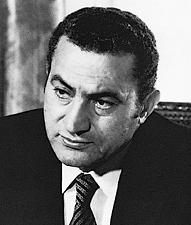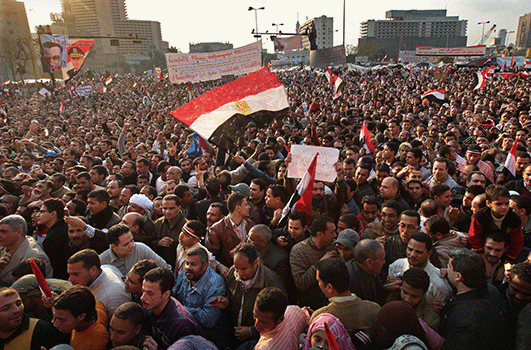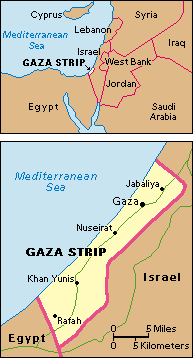Hosni Mubarak Released From Prison
Thursday, August 22nd, 2013August 22, 2013

Former Egyptian president Hosni Mubarak was released from a Cairo prison today (State Information Service of Egypt).
Former Egyptian President Hosni Mubarak was released from Cairo’s Tora prison today. An Egyptian court ordered his release after two years of pre-trial detention on corruption charges. He will be under house arrest pending further investigation of those charges, which allege that Mubarak accepted $11 million in gifts from the state-run newspaper Al-Ahram. Other corruption charges are pending for the ex-president, and he is appealing a conviction for allegedly ordering the deaths of Egyptian protesters in the 2011 uprising that led to his ouster.
Mubarak served as president of Egypt from 1981 to 2011. In January 2011, hundreds of thousands of Egyptians took to the streets, demanding his resignation. Critics complained that Mubarak’s administration was rife with corruption and had all but crushed civil rights. Protests against his regime became progressively more violent until he was forced to yield power to Egypt’s military in February 2011.
The transition from military to civilian rule was carried out fairly peacefully, and in June 2012, Islamist candidate Mohamed Morsi became the first freely elected president of Egypt. Morsi pushed an Islamist agenda strongly favored by the Muslim Brotherhood, sparking widespread protests. Many Egyptians believed that Morsi was more interested in turning Egypt into an Islamist state than in dealing with the country’s many problems. The lack of public security under Morsi undermined the economy, which remains in a desperate state. More than 1 million people were thrown out of work during his one year in office. Finally, the Egyptian military removed Morsi from the presidency on July 3. On July 26, Morsi was formally charged with espionage and conspiring to carry out “aggressive acts in the country” during the 2011 uprising.
Experts on the domestic situation in Egypt noted today that Mubarak’s release is widely seen as a sign that the revolution of 2011 has come full circle with the army once again firmly in control. The military has imprisoned hundreds of members of the Muslim Brotherhood and former President Mohamed Morsi remains in prison.
Additional World Book articles:
- Tahrir Square
- The Middle East: From Fall to Spring (a special report)
- Egypt (2011) (a Back in Time article)
- Egypt (2012) (a Back in Time article)




